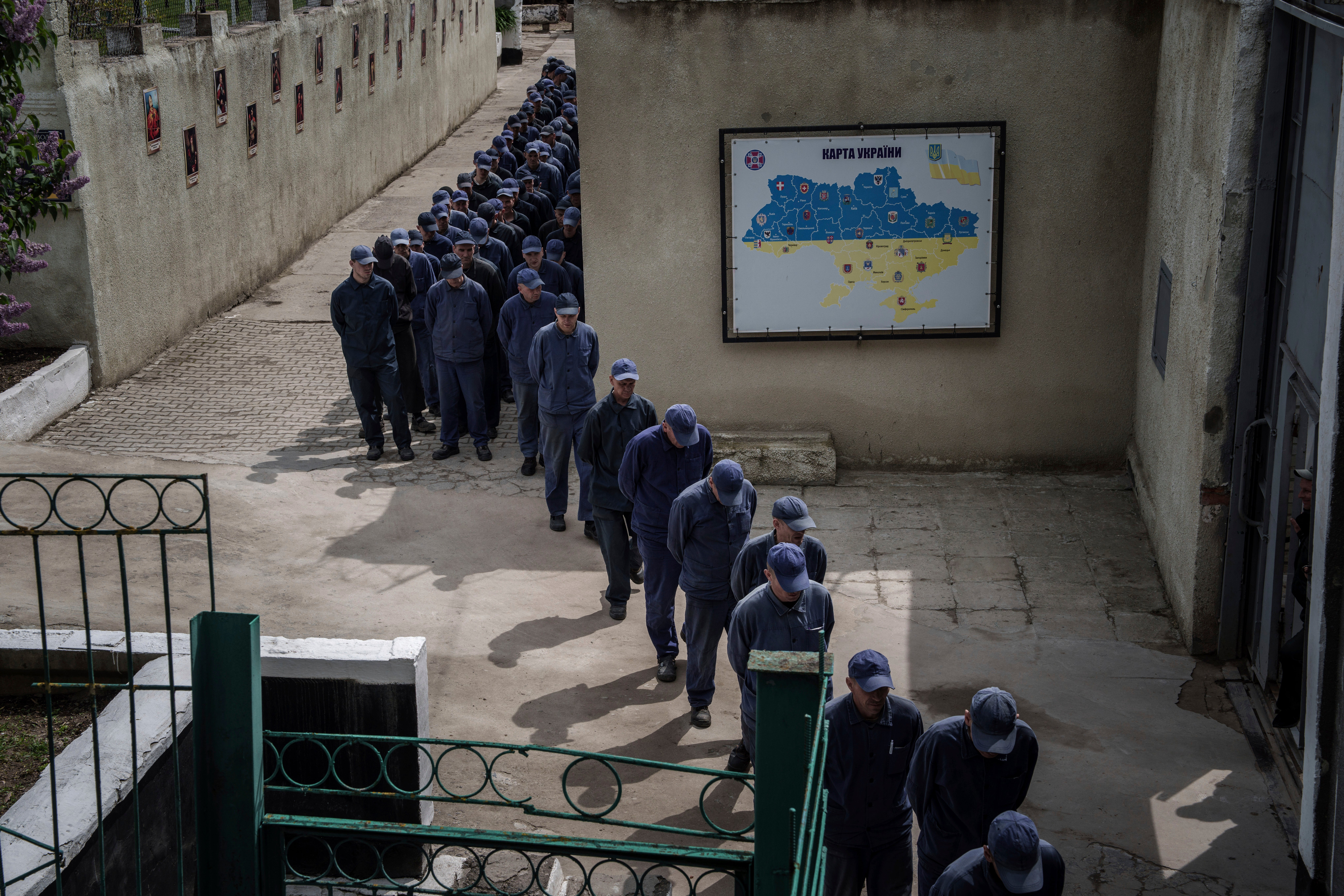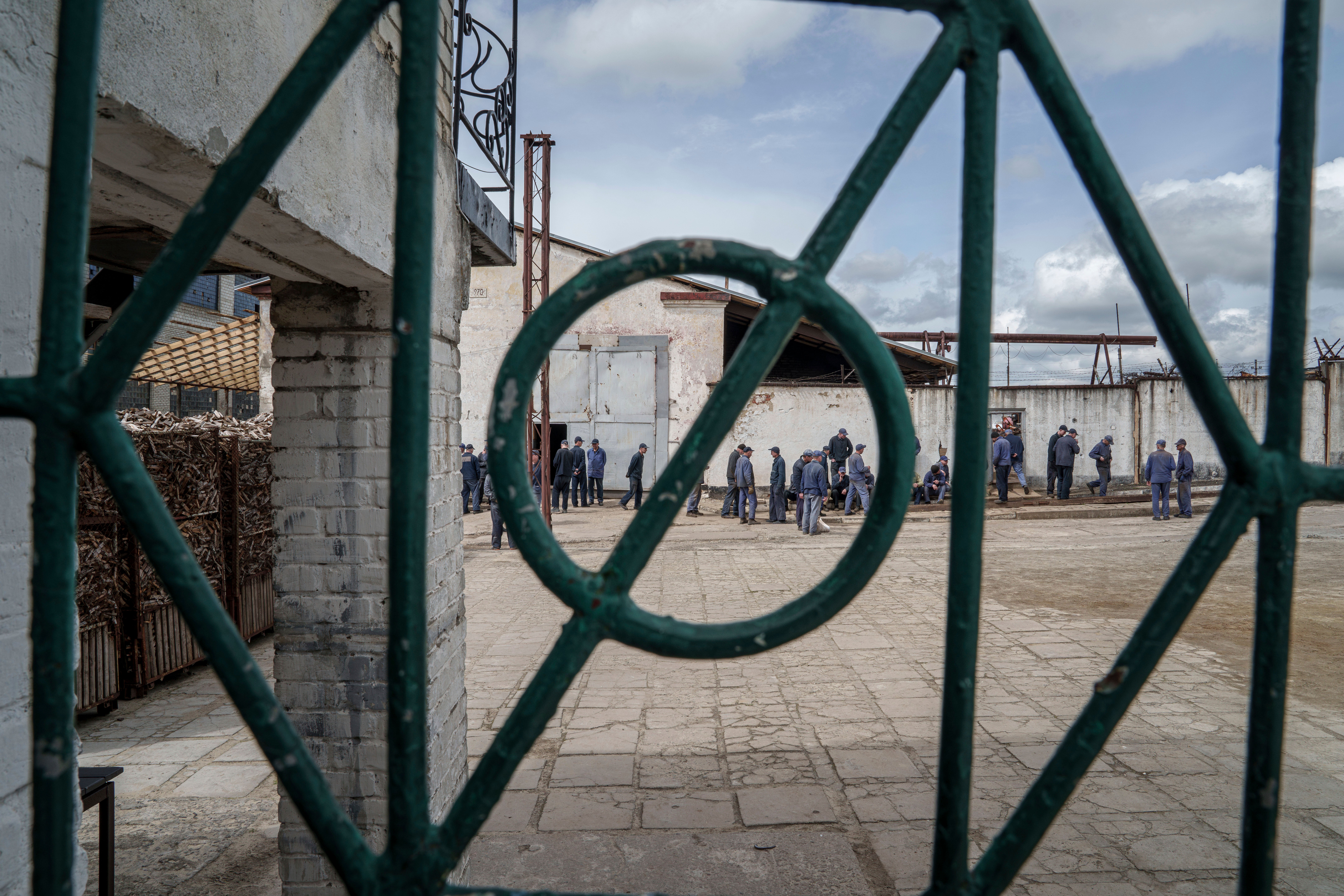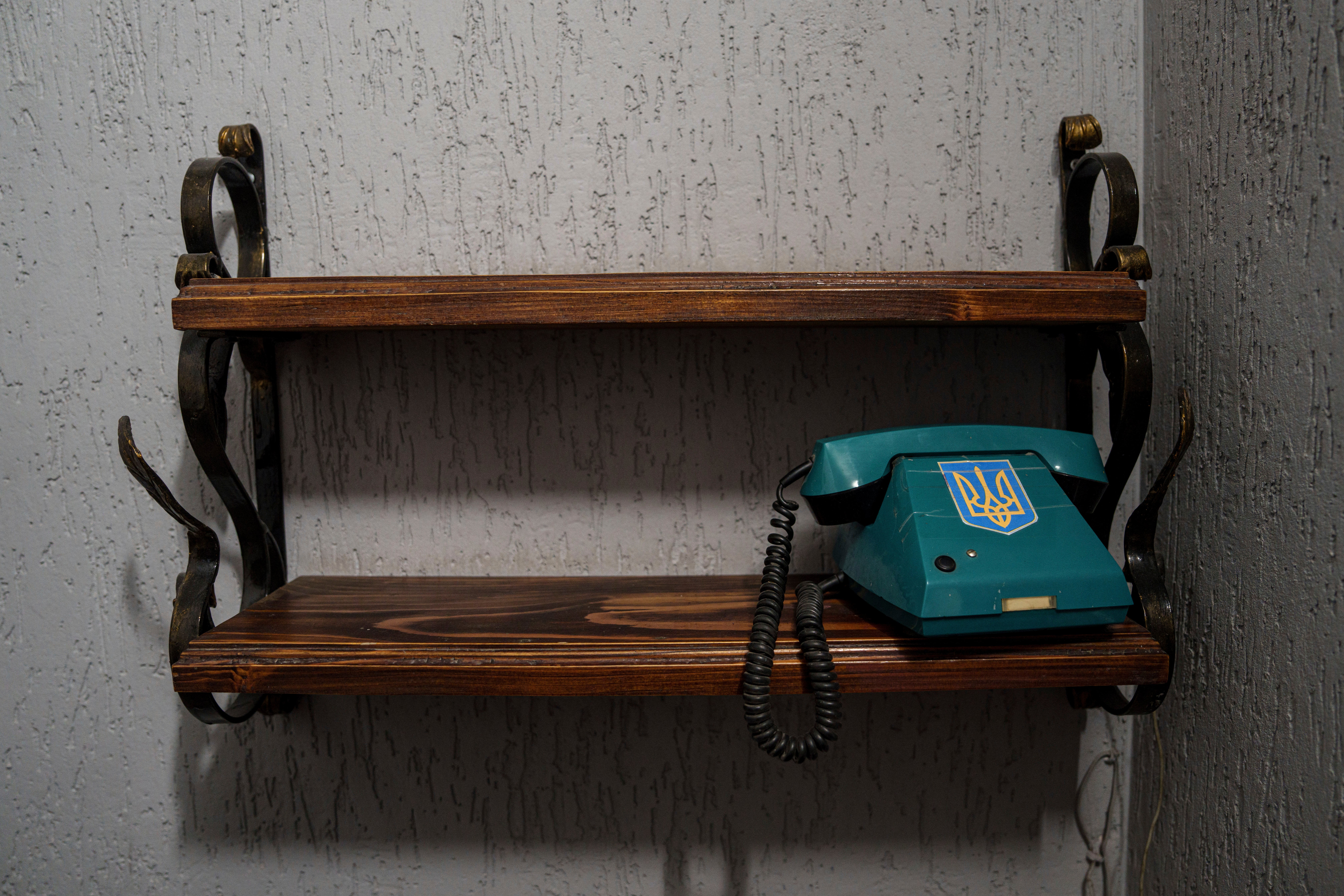Russian prisoners get to make phone calls home. Ukrainians don’t
For hundreds of Russian soldiers taken prisoner, phone calls home can offer a bit of comfort and hope

Precious few choices are available to Alexander, a 26-year-old Russian soldier, since his capture: Clothes, meals and the hours of his day are rigidly accounted for in the camp for prisoners of war.
But Ukraine allows Alexander to call home to his family in Kursk, a Russian city about 60 miles (100 kilometers) from the Ukrainian border, and he says that has kept him grounded.
It is a lifeline unavailable to Ukrainian POWs. Now, infuriated Ukrainian families are demanding an end to the phone calls imprisoned Russian soldiers get to make.
“To be able to talk to your loved ones is worth a lot. I’ve already been in prison for almost a year. I’m losing my mind,” Alexander told The Associated Press during a recent visit for several news outlets to Ukraine’s main POW camp, as he completed his work shift. “People are not made of steel.”
He said the brief conversations, closely monitored by his Ukrainian captors, pulled him from the brink of despair – even though for him and all Russian POWs, the calls are growing rarer by the week.
For imprisoned Ukrainians, calls are nonexistent and even letters rare. Families usually learn their fate only when comrades freed in exchanges bring back word.
The last such exchange was February 8. In all, 2,988 members of the Ukrainian military have been exchanged for Russian prisoners of war, according to Ukrainian government figures. Neither Ukraine nor Russia has said how many POWs there are in all. Russia's Ministry of Defense did not respond to written requests for comment on its policy toward Ukrainian POWs or the Russians held in Ukraine.

Ukraine has regularly opened its main POW camp to the Red Cross, the United Nations and international journalists. In late April, The Associated Press visited the site in western Ukraine, a full day’s journey from the front lines where the men inside were captured. The visit took place on the condition its precise location not be revealed.
Access to Russian sites where Ukrainians are held is severely limited. U.N. reports based on post-release interviews have found that the majority of Ukrainian POWs are subject to routine medical neglect, severe and systematic mistreatment and even torture. The same reports have found isolated reports of abuse of Russian soldiers, mostly during capture or transit to internment sites.
AP did not see any other internment sites. AP could not verify treatment of prisoners generally, or treatment at the main site outside its five-hour visit.
A few Russian POWs talked eagerly and at length with AP journalists, though most refused to speak at all. Guards stayed far from journalists during interviews. Prisoners gave only their first names.
Over three weeks, families of Ukrainian POWs gathered more than 25,000 signatures for a petition to stop Russian POWs’ calls home and sent it to the government, which quickly rejected the demand in late April. The families, who say their pain is being ignored in favor of keeping Russian prisoners comfortable, are appealing.
Their movement is gaining momentum beyond POWs’ immediate families, with protests growing by the week.
Under the Geneva Conventions, POW privileges include regular communication home in the form of letters and cards at least twice monthly. Ukraine has gone beyond that by allowing for the 15-minute calls since the start of the war, in hopes Russia would reciprocate.
In rejecting the families’ petition, the government cited the convention but also said the calls can only help protect captive Ukrainians.

The conversations, a government statement said, show Russian soldiers there is nothing to fear by surrendering.
“This will help to increase the number of prisoners of war, which will make it possible to release more defenders of Ukraine who are captive in the aggressor state,” the statement said.
Alexander Vlasenko, a spokesman for the International Committee of the Red Cross in Ukraine, declined to comment on the disparity in access to phone calls for the POWs. The Red Cross organizes much of the communication, but Vlasenko said unlike letters, phone calls are up to “the goodwill of the parties.”
The families’ anger and the petition rejection come amid widespread reports of mistreatment of Ukrainians in Russian captivity.
While POWs are far from the fighting, the war still reaches them. Air raid sirens sounded four times during AP’s visit. During each, the men lined up in pairs with their hands clasped behind their backs, submitted to a brief pat-down, and trudged with their heads down into basement shelters until the all-clear.
POWs who are not wounded work during the day. Among the tasks: fabricating plastic Christmas trees, building garden sheds, ripping pallets into kindling, and sorting metal in the junkyard. Others are responsible for meals.
When POWs pass guards, their hands must be behind their backs. When they rise from meals, they must shout “Thank you” in Ukrainian in unison. Like many Ukrainians, the guards largely speak and understand Russian, but the prisoners rarely speak or understand the language of their captors.
The calls take place in a small upstairs room overlooking a church and treetops. On the desk is a monitor and small logbook for detainees to write their name, date of the call, location and time elapsed. All the detainees who spoke to AP said they treasured the brief conversations, even knowing they were monitored.
An injured POW who said he’s been in the camp since January told AP about two phone calls – one to his wife, with no answer, and the other to his adult daughter. He wouldn’t give an opinion about whether it’s fair for the Russians to have access to calls while the Ukrainians don’t.
“We’re feeling bad here, and they’re feeling bad there. Only the leadership is winning in this situation,” said the prisoner, whose name AP is withholding for his safety. “We lose every time. We’re pawns. Pocket change. Everything they want to do, they do. I can’t even have my own opinion.”

For Anastasiia Savova, news of her father hasn’t come since December 2022. She last spoke with him eight months earlier, as he and fellow Ukrainians defended Mariupol, the port city seized by Russian forces early in the war.
Through a returning POW, she learned her father’s health was deteriorating. But she also heard about how proud he was of her, how certain he’d been that she was fighting for his release. She longs to hear from him directly and said she's furious her government isn’t listening to families like hers. She wants the calls to stop if Russia won’t reciprocate.
“We thought that this step would help us to connect with our loved ones, that the Russian Federation would make it possible to call them,” she said. “But unfortunately, Russia didn’t go along with these rules and norms.”
Without contact, she said, families are afraid their men will lose hope when they need it most. Some of her deepest fears, though, are more personal: “I am very afraid of forgetting his voice.”
Bookmark popover
Removed from bookmarks